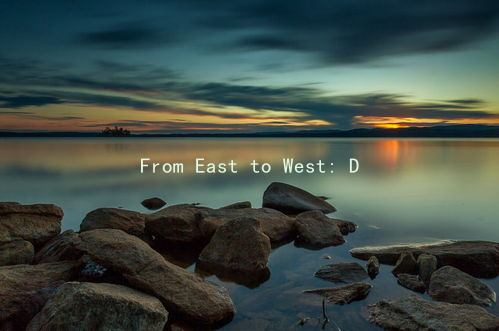From East to West: Discovering Women’s Unique Romantic Preferences Across Cultures
From East to West: Discovering Women’s Unique Romantic Preferences Across Cultures
As our world continues to globalize, understanding love and relationships across different cultures becomes increasingly significant. Women’s romantic preferences often vary not just from culture to culture but also within diverse subcultures. This article explores the various enchanting romantic nuances experienced by women in Eastern and Western societies, highlighting how cultural contexts shape their expectations and approaches to romance.
In many Eastern cultures, traditional values heavily influence romantic relationships. Familial opinions and social structures often play pivotal roles in how women perceive love. For instance, in countries like India and China, marriages are frequently seen as a union of families rather than just two individuals. Here, women may prioritize qualities such as stability, security, and respect in their partners, valuing traits that indicate the ability to provide for a family. Romantic gestures may include more pragmatic expressions of love, such as demonstrating commitment through career achievements or financial security.
Moreover, collective cultural norms often govern dating practices in the East. For example, in Japan, concepts like ‘kokuhaku’ (a formal confession of love) are vital in establishing relationships. Here, patience and a clear display of intentions are appreciated. Women might prefer subtle communication, where persistence and sincerity reign supreme. Thus, engagement in the dating process is gradual, allowing for emotional depth to develop over time.
Contrastingly, in many Western cultures, particularly in North America and parts of Europe, individualism and self-expression often dictate romantic interactions. Women in these regions may lean towards relationships that emphasize personal freedom, compatibility, and shared experiences. The dating culture encourages openness and direct communication, allowing women to express their preferences boldly. In contrast to the East, Western women might enjoy playful banter and humor as essential elements of attraction, viewing the excitement of dating as an opportunity for fun and exploration.

In the West, romantic gestures can range widely, from grand romantic outings to spontaneous adventures. Women often appreciate both thoughtfulness and creativity in their partners. Simple yet sincere efforts, such as meaningful conversations or unexpected treats, can hold significant value. Additionally, the embrace of technology in the dating world, like dating apps and social media, has created new avenues for connection, allowing women to express their desires more freely and explore compatibility without the traditional pressures of societal expectations.
Despite these differences, common threads can be found globally. Regardless of cultural background, women often seek respect, understanding, and emotional support from their partners. Compassion and reliability transcend cultural barriers, creating deeper connections that withstand the test of time.
Cultural exchange has made it easier to appreciate diverse romantic preferences, as globalization encourages deeper understanding and appreciation of other cultures. Personal stories, films, and literature from varying traditions can provide insight into the complexities of love across the globe. As such, it becomes evident that both Eastern and Western women bring unique dimensions to romance, lending richness to the human experience.
In conclusion, navigating the delicate landscape of romance requires a fine balance of cultural sensitivity and personal authenticity. Whether steeped in tradition or bold in expression, the unique romantic preferences of women across cultures highlight the beauty of loves complexity. People from both the East and West have much to learn from each others approaches to love, helping build bridges of understanding and connection in an increasingly interconnected world. Fostering empathy and open conversations can lead to more fulfilling relationships, transcending cultural constraints and enriching the human experience of love.





